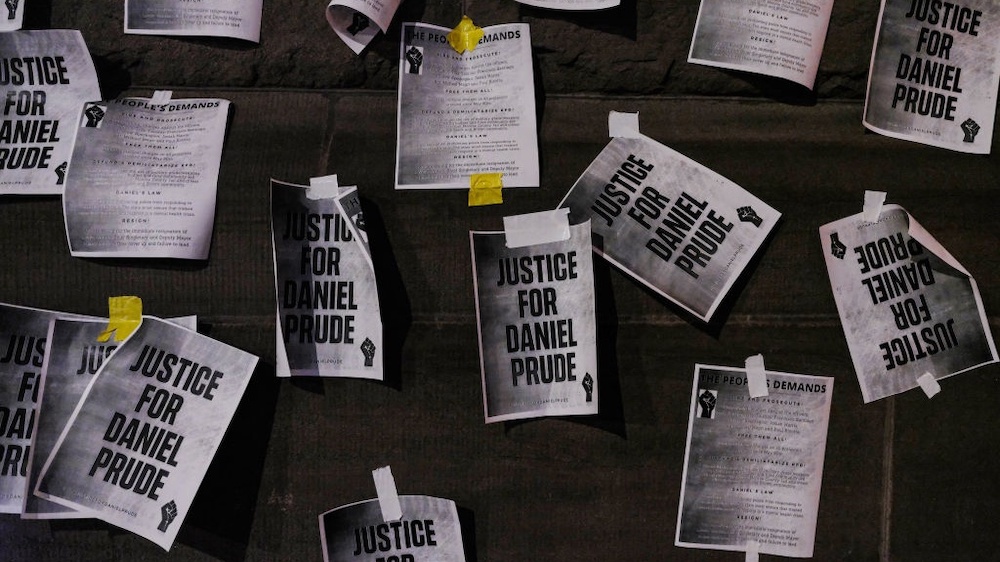If you’re interested in sharing your opinion on any cultural, political or personal topic, create an account here and check out our how-to post to learn more.
Opinions are the writer’s own and not those of Blavity's.
____
A little over a year ago, in the city of Rochester, New York, 41-year-old Daniel Prude took his last conscious breaths inside a police-issued spit hood. Prude was a Black man, and he was experiencing an acute mental health crisis. Yet, he was detained like a criminal.
A decade ago, I moved to Rochester to work at the Legal Aid Society. My focus was family law and domestic violence, and I had the opportunity to work with Rochesterians from all walks of life. We are a beautiful and diverse community, growing with recent arrivals from Puerto Rico, East Africa, Jamaica and many other places, and replete with families whose roots reach back hundreds of years. These characteristics of Rochester resemble many other communities around the country — diverse, filled with complex history and great collective promise.
One of my earliest memories from my move is my colleagues enthusiastically commenting to me that Rochester had a Wegmans supermarket and that I would love it. Little did I know then that this same store would become the epicenter of activism on the anniversary of Daniel Prude’s detainment, where our community would issue a call for the racial justice work that lies ahead.
As we recently passed the one-year anniversary of Daniel Prude’s terrible last moments we must ask ourselves: what have we done to prevent the next death? Has our community effectively united to combat systemic racism? Have we sufficiently reformed our criminal justice system to ensure that what happened to Daniel doesn’t happen again?
Following Daniel’s death, a grand jury declined to indict the officers who presided over his last waking moments. Just recently, our city was once again in the national spotlight when Rochester police officers handcuffed and pepper-sprayed a nine-year-old Black girl. As she cried that her eyes burned and asked for her father, she received no sympathy from the officers. And even the promising impact of the Police Accountability Board appears to be in question, with its disciplinary powers stripped.
Black men, women and children fear for their lives at the hands of law enforcement. In the United States, about one in every 1,000 Black men can expect to die from police violence. We cannot let another year go by without structural, sustained change in our community.
Our nation is experiencing a reckoning for racial justice. Increased awareness is the first step towards reform, not the last. As the National Organizing Director of an organization that brings together Jewish activists and allies to fight for progressive values, I have seen first-hand the impact of broad coalitions working together to achieve justice, progress and lasting change.
It’s time to organize and build a coalition of Rochesterians seeking a freer, safer future for our city. Together, we can reimagine community safety for all from the ground up.
First, we must examine the power of police unions. They often stifle the ability of officers to adequately report offenders within departments. This culture does not serve the intended role of police in our communities, which is to protect and serve.
Second, police officers should be better equipped and prepared to handle mental health crises. People experiencing mental illness or a disability are 16 times more likely to die during an encounter with police. To address this, Rochester should examine New York City’s recent reforms. They announced that in response to mental health emergencies, teams of health professionals will be dispatched. This shift will help prevent future escalations between police and those experiencing mental health crises.
Third, we must advocate for reform on how officer performance data is kept, to increase transparency and build trust throughout the community. We need courageous, justice-minded leadership to set new standards for what kind of behavior is rewarded versus disincentivized in their departments.
These reforms must be implemented in collaboration with the community and with the intention of addressing structural racism. The increased awareness and activism around racial justice is a necessary development. Let it be the first step of a continuing journey toward action and reform — for Daniel Prude, for the nine-year-old child, for so many others and for our community.
____
Lauren Deutsch is the National Director of Organizing for Zioness and a resident of Rochester.
